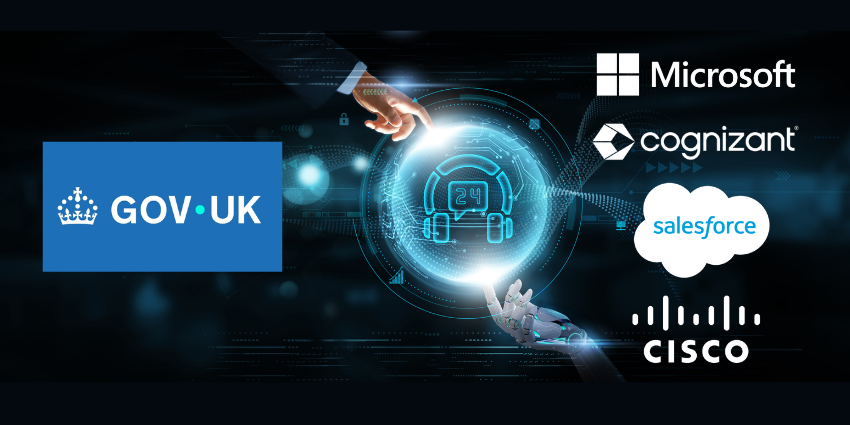For decades, the private sector has invested heavily in innovations and solutions to improve the quality of customer service and experience.
Today, citizens expect the same frictionless, always-available, and personalized experiences from their local government as they do from their bank or favorite online retailer.
Meeting that demand isn’t a luxury anymore – it’s a necessity.
“There’s no waiting this out,” says Kyle Birker, Solutions Architect at ComputerTalk.
“If you’re still on the fence about AI in customer service, it’s time to move.
“Citizen expectations are heavily influenced by the private sector, and they’re not going backward.”
And yet, some government departments remain hesitant.
Concerns around regulations, legacy infrastructure, and the sheer scale of change are real, but so are the consequences of falling behind.
From personalization to feedback analysis, AI is rapidly proving itself as the key to responsive, accessible, and human-centric public service.
The Personalization Imperative
One of the clearest benefits of AI in government CX is the ability to personalize interactions without sacrificing efficiency.
In the past, citizens were expected to provide their information from scratch each time they reached out. Now, they expect services to remember who they are, why they’ve called, and what’s already been discussed.
Imagine a contact center experience where, instead of asking for your name and account number, the system already knows why you’re calling.
It can greet you by name, reference your previous interactions, and even allow you to continue a conversation with the same agent – this is what the right AI tools can deliver.
For Birker, “Personalization is no longer a nice-to-have, it’s core to good service.
“But to make that happen, governments need AI tools that integrate seamlessly with existing CRMs, case management tools, and citizen databases.”
ComputerTalk’s approach enables just that.
By pulling relevant information from multiple sources, summarizing history across channels, and delivering that context to both bots and human agents, the platform ensures citizens don’t have to repeat themselves.
Not only does this prevent customer frustrations, but it also allows agents to respond with greater clarity and empathy.
From Passive Listening to Proactive Improvement
Beyond real-time engagement, AI also plays a critical role in transforming how governments listen to and act on feedback.
Traditionally, public sector feedback mechanisms relied heavily on post-interaction surveys or manual call reviews, processes that are time-consuming and inherently limited in scope.
“With AI, you’re no longer relying on five to ten percent of your calls being reviewed by a person,” says Birker.
“You can analyze 100 percent of interactions across all channels – and you can do it in minutes, not weeks.”
This shift enables public organizations to hear what’s being said and identify patterns, sentiment, and emerging issues far more quickly.
Perhaps most importantly, it helps users correct the “cracks” where friction points are silently impacting thousands of citizens without being reported.
But feedback is only useful if it leads to change.
That’s why ComputerTalk integrates AI-derived insights directly into CX workflows.
In doing so, it aligns real-time customer sentiment with agent behavior, script adherence, and process outcomes to highlight what’s working and what isn’t.
Government-Grade Strategy with a Human Touch
While AI can transform government CX, successful implementation demands more than smart software.
It requires a strategy that respects the public sector’s unique challenges – such as data privacy, regulatory requirements, diverse citizen needs – and a partner who understands how to navigate them.
That’s where ComputerTalk differentiates itself.
“We don’t just sell a solution – we work collaboratively,” says Birker.
“We spend time with our clients in the discovery phase, understand their goals, uncover their friction points, and build an iterative rollout plan based on their needs.”
This collaborative, step-by-step approach ensures that AI adoption isn’t rushed or disruptive.
Instead, features are implemented gradually, feedback loops are embedded, and teams are supported throughout the change process.
There is a wider industry lesson that can be learned from ComputerTalk’s approach: many customers aren’t aware of the full capabilities of AI.
And this isn’t limited to the public sector, it is an issue across all customer experience and service departments.
In order to combat this, vendors must treat their customers as partners and pass on experience and guidance, not just products.
For Birker, one way to help customers better understand the technology is to encourage them to interact with it daily.
As users become more comfortable with the technology, they are more likely to see the benefits and champion it, which can lead to greater adoption.
Another area that organizations should explore is the use of discovery and cross-industry expertise, which can help customers optimize their current solutions and discover new uses for AI.
When the professionals charged with utilizing AI are more knowledgeable and engaged with the solutions, it benefits everyone, as Birker explains:
“Internal employees need to understand what AI can do for them, not just for the citizen.”
Getting AI Right in the Public Sector
AI isn’t a silver bullet technology, but when done right, it can be a powerful force for more equitable, accessible, and efficient public service.
For government bodies juggling high demand, limited resources, and ever-rising expectations, AI can fill critical gaps – enabling 24/7 service without compromising on quality.
In other words, it’s no longer a question of if governments should embrace AI, but how quickly, responsibly, and effectively they can do so.
For more information on ComputerTalk, you can visit the website today.
You can also learn more about the vendor by watching this interview with Jennifer Sutcliffe, VP of Operations and Control, and reading about its proactive, above-and-beyond approach to contact center data security.







